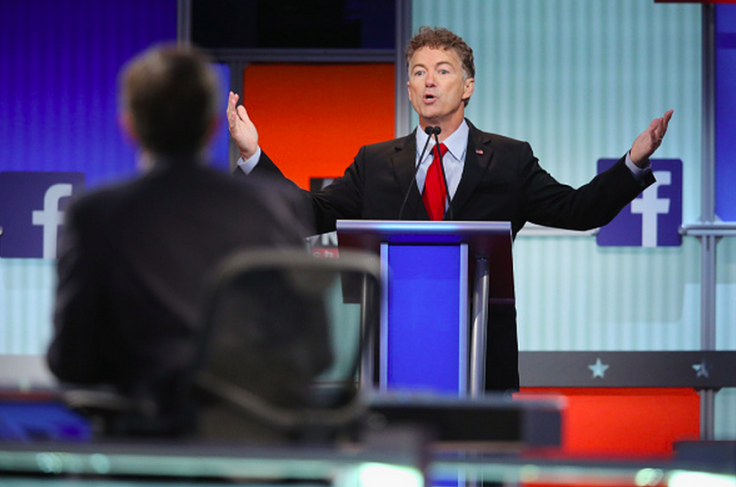How Facebook Turned Fox News' GOP Debate Into Must-See TV For Millennials

In one of the most memorable moments from Thursday night’s GOP debate on Fox News, moderator Megyn Kelly closed the event by asking if any of the candidates had "received a word from God on what they should do and take care of first.”
But it wasn’t a question Kelly had crafted herself nor thought up in the Fox News war room. Rather, it came from Chase A. Norton, a Facebook user who had sent the query to Fox online via the social network, its partner for the much-anticipated prime-time event. Norton’s question was one of four selected from Facebook by the hosts, out of 40,000 submissions. Another, from Facebook user Alex Chalgren, was a video clip of him inquiring what the candidates would do to stop ISIS.
.@marcorubio: God has blessed the Republican Party with some very good candidates. The Democrats can't even find one. pic.twitter.com/v63VTQo5jG
— Fox News (@FoxNews) August 7, 2015Facebook’s role proved that television networks are now much more than just talking heads. By incorporating social media, Fox showed that on-air news can thrive from a connected and second-screen experience. The partnership between Fox News, a traditionally right-leaning network, and Facebook, whose user base has been identified as skewing liberal, added a broader scope to the debate’s orchestration.
"Facebook’s scale and foundation in real identity give Fox News and the Republican contenders for the nomination the opportunity to open up the debate to Americans in a new and unique way,” Andy Mitchell, Facebook’s news and global media partnership director said in a statement, according to The Daily Dot. And crucially for the GOP, which has struggled to connect with younger voters, Facebook's participation helped pull in millennial-aged viewers who might ordinarily shun such an event.
Besides presenting selected user questions, Fox News also shared general insight from Facebook posts analyzed by the network over the past two months. For example, moderator Chris Wallace highlighted immigration as a “hot topic” on Facebook. Viewers took notice -- how could they not? In nearly every shot of the debate on Fox News, a giant blue square with the letter “f” hovered behind the speakers’ heads.
My main takeaway from watching the GOP debate is that Facebook logo apparently is running for president.
— Andrew Kisslo (@akisslo) August 7, 2015FB logo throughout the GOP debate along with Fox. Facebook clearly has a major role in politics. Maybe 'Zuckerberg for president' someday?
— Tanmay (@manipalite) August 7, 2015Facebook logo for president. #GOPDebate
— Alexander William (@AlexAllTimeLow) August 7, 2015As a social network where users identify their personal information (age, location, interests) and engage in conversations with friends and on public forums, Facebook has proven its worth in ad targeting along with data analytics for several industries, including politics. Facebook boasts 1.49 billion monthly active users, 213 million of whom are in the United States and Canada, as of July 2015.
This isn't the first time Facebook has partnered with a television network for debate coverage. In 2012, it teamed up with NBC for submitting questions and even streamed the entirety of the event on the site. In 2008, Facebook created an online community called "Debate Groups" in partnership with ABC News.
And indeed, Facebook’s ads reportedly contributed to U.S. President Barack Obama’s successful campaign in the 2008 and 2012 elections. For the 2012 presidential election, Facebook also created an “I’m Voting’” button, which was cited as a factor in driving people to the polls. However, the tool and Facebook tweaking what appeared in users’ News Feeds around the election was also criticized as “manipulative,” in a Mother Jones report. But in November 2014, the network released the button again.
Evident from last night’s debate, Facebook does not seem to be stopping its deep dive into politics. “[Fox News] using Facebook to bring those viewers into this debate demonstrates how the platform has become an essential part of the political process,” Facebook’s Mitchell said in a statement.
© Copyright IBTimes 2025. All rights reserved.






















